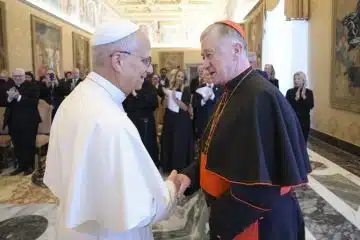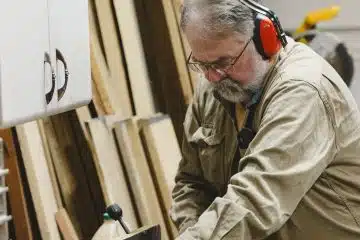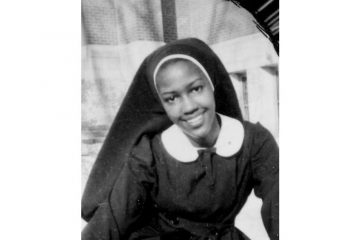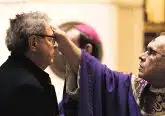Synodality, Sensus Fidei & Development of Doctrine
Beginning on October 4, 2023, two years after launching a process known as the “Synod on Synodality,” bishops, theologians and other participants will assemble at the Vatican for the first session of “For a Synodal Church: Communion, Participation, and Mission.” My optimism for the Synod’s success is persistent, albeit guarded. It is proper for the Magisterium to engage in the process of listening to the Holy Spirit’s promptings as He speaks to and through the Church, the Mystical Body of Christ. Indeed, that is among the more important of the
bishops’ various roles. The Magisterium must be alert to the voice of the Spirit as He guides the Church into a deeper and broader understanding of the truth of the Gospel. This process must be undertaken with great care and circumspection, rooted in the venerable tradition of the Church’s settled doctrine.
Beginning with the “Preparatory Document” in October 2021, I have been hopeful that the Synod would create a steady and clear course, with a well-defined goal as to its purpose. For this to happen, Synod participants must be diligent and attentive. They must distinguish between the Spirit’s subtle prompting and the noisy agitation of voices clamoring for radical change, if not abandonment, of central Church teachings.
This challenge is illustrated in the very first sentences of the Instrumentum Laboris, the Fall sessions’ agenda. “The People of God have been on the move since Pope Francis convened the whole Church in Synod in October 2021,” it commences. “Beginning at their most vital and elementary level, the local Churches across the globe have initiated the consultation of the People of God,” it continues. This would ideally be the case; unfortunately, the data suggests otherwise. According to a September 19, 2022 report from the U.S. Conference of Catholic Bishops, only about one percent of the 66.8 million Catholics in the U.S. participated in the “listening sessions” that are at the Synod’s heart. While the composition of those one percent is anecdotal, it seems to be dominated by persons less interested in listening and more interested in agitating for substantial changes in Church doctrine and practice, including changes that would contradict well-settled tradition and dogma. In other words, a significant number of participants—on both sides of major questions—seem more determined to dictate terms to the Holy Spirit than to listen to His prompting.
The difference between dictating and listening is crucial because it plays on the most fundamental questions of the doctrine’s development and the integrity of articles of faith. The 2021 Preparatory Document explained that the Synod on Synodality’s purpose is to assess and evaluate the state of the “sensus fidei,” or “sense of the faithful” of the whole Church. The sensus fidei is explained in the Catechism of the Catholic Church: “All the faithful share in understanding and handing on revealed truth” (CCC 91). Guided by the Holy Spirit, the Catechism continues, “The whole body of the faithful … cannot err in matters of belief. This characteristic is shown in the supernatural appreciation of faith (sensus fidei) on the part of the whole people, when, ‘from the bishops to the last of the faithful,’ they manifest a universal consent in matters of faith and morals” (CCC 92). With this as background, the Preparatory Document for the Synod explains, “Every synodal process, in which the bishops are called to discern what the Spirit is saying to the Church…by listening to the People of God, … is an evident form of that ‘journeying together’ which makes the Church grow.”
This discernment process is sometimes called the “development of doctrine.” As most richly taught by the great theologian, St. John Henry Newman, doctrine develops as the Church’s knowledge of the truth of the Gospel grows deeper, broader and richer. No single generation of the Church can attain an inexhaustible understanding of the richness of the whole deposit of faith. Theologians and the Magisterium have complementary roles and responsibilities in doctrine’s development. Theologians probe faith’s depths and boundaries, testing the limits of doctrinal integrity. Working with theologians, the Magisterium guards the essential truth of the deposit of faith, so that contradictory doctrines are not promulgated. The latter, Newman wrote, is the “corruption” of doctrine, not its development.
As the Synod on Synodality progresses, Pope Francis and his advisors will be attentive to the voice of the Spirit as He guides them more deeply into the fullness of the truth. This necessarily will involve resisting the zeitgeist of prevailing articulations of secular morality so the continuity of developing doctrine can be maintained. My prayer is that the Church’s understanding of the truth of the Gospel will emerge from this process more acute and sure than it was when the Synod on Synodality began. As Catholic Christians, we affirm the sensus fidei as discovered, interpreted, articulated and developed by the Church’s Magisterium. Thus, we must join in prayer for the Synod’s success, not so that any faction might prevail, but so that the truth of the Gospel may be sustained and communicated in fresh and invigorating ways.
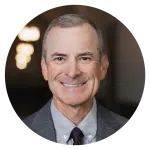 Dr. Kenneth Craycraft is an attorney and the James J. Gardner Family Chair of Moral Theology at Mount St. Mary’s Seminary & School of Theology.
Dr. Kenneth Craycraft is an attorney and the James J. Gardner Family Chair of Moral Theology at Mount St. Mary’s Seminary & School of Theology.
This article appeared in the September 2023 edition of The Catholic Telegraph Magazine. For your complimentary subscription, click here


